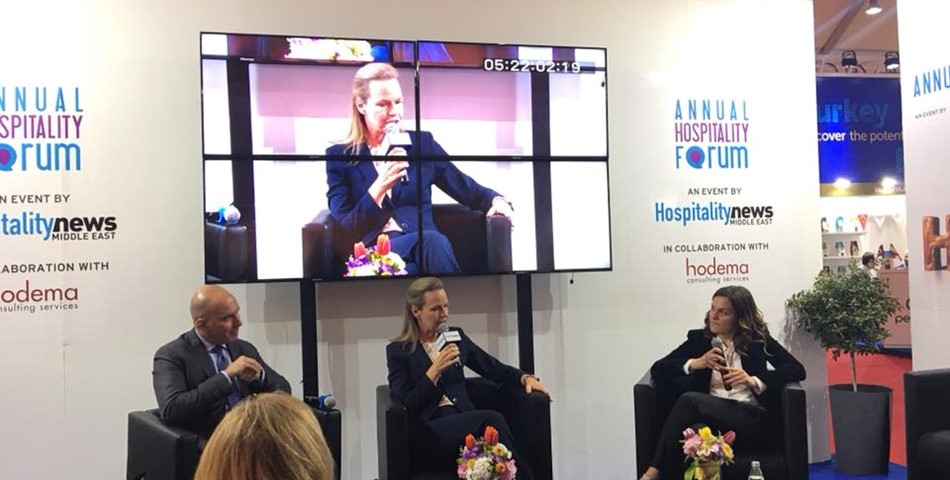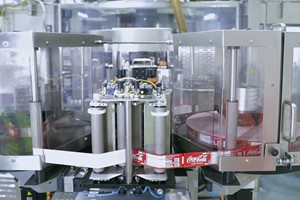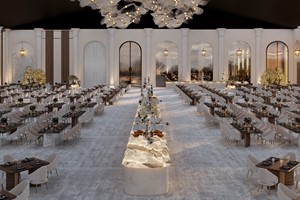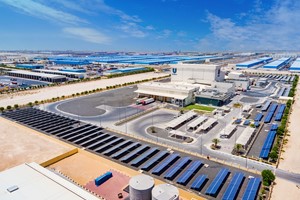The Annual Hospitality Forum at Horeca 2018 hosted a roundtable entitled “GM Roundtable: Predictions of the ongoing development of the Lebanese hospitality sector up to 2020”. The participants in the roundtable were Georges Ojeil, the General Manager of Le Gray Beirut and Dagmar Symes, the General Manager of Phoenicia Beirut and Le Vendôme InterContinental Hotels. They both shared the challenges faced them over the past few years at their hotels and gave their predictions for the sector until 2020.
Tourism remains the backbone of the Lebanese economy and the cornerstone of employment. Lebanon's robust tourism sector largely contributes to the domestic economy as a major source of income and employment. However, with Lebanon being a highly politicized country, political factors contribute to the instability of both visitors and hotel owners. Since 2011, and due to the Syrian war, the sector has faced many challenges but the GCC travel ban was the toughest.
In 2016 the total travel and tourism contribution was around 19 percent of GDP with a total of 338,600 tourism-related jobs invigorated within the economy. The improving political stability in Lebanon and the region in 2017 has spurred the recovery of the Lebanese tourism sector. According to the Ministry of Tourism, in 2017, tourist arrivals hit their highest level since 2011 with 1.85M tourists visiting the country, revealing a 10 percent yearly increase.
As Georges Ojeil, General Manager, Le Gray Beirut, explained: “2017 was the second best year ever in the history of the hotel in terms of demand and occupancy.” In 2015 and 2016, the hotel front doors were hit by series of protests in response to the government's failure to find solutions to a waste crisis. The hotel’s location didn’t actually facilitate the flow to the property. “We witnessed an increase in demand during 2017 and we managed to differentiate the business at the time. The demand was still shy from the main feeder market, the GCC community. In November, the country witnessed the resignation of the Prime Minister Hariri, our sales dropped from 70-80 percent on a monthly basis to 20 and 30 percent. Regrettably, tourism is interconnected to stability, Lebanon is a highly politicalized country; any event can impact the demand and people cancel their bookings,” clarified Ojeil.


Dagmar Symes, the General Manager of Phoenicia Beirut and Le Vendôme InterContinental Hotels, agreed with Ojeil on the overall situation. “It is slightly different from our perspective because with 470 rooms at Phoenicia, we rely on far more segments and business opportunities and the year overall was one of the best for years,” said Symes. With the gradual decrease of GCC visitors to Lebanon, the sector has shifted to the Iranian, Iraqi, Egyptian and Turkish segments, subsequently reducing dependence on Gulf countries. The sector adopted different strategic decisions and penetrated to diverse markets and business pipelines. “The ban didn’t affect us in a negative way, we didn’t lose out because we had an immediate replacement market that boosted the occupancy,” elucidated Symes.
Regarding the spending power at the hotel, Ojeil declared that the spending power at Le Gray is consistent. “Our guests and our tracked target market maintain their purchase power because it is a boutique hotel.” Symes sees that the Middle Eastern community’s spending power is higher than any other community. “They like to dine in, stay at the hotel and spend their money at the hotel. Unlike the European community who likes to explore the town and eat on the go.” The Lebanese expats were also the salvation to the tourism sector, they are boosting the demand especially during the leisure season. On the other hand, the hospitality sector in 2018 is booming compared to the Q1 in 2017, in spite of the parliamentary elections happening in May.
As for their predictions for 2020, the market will witness enhanced dynamics, with the help of the international community, investments in infrastructure will support the hospitality sector’s growth. The estimates of the values of gas and oil reserves will definitely contribute to an increase in the GDP and economic growth of Lebanon over the coming 5 years. “We will receive CEOs, engineers, and managers at our hotels, we will be organizing their conferences,” noted Ojeil. As Symes elaborated, in addition to the great business the oil and gas sector will carry, the construction of Syria will start from Lebanon. “We will definitely get new business which started anyway”. Finally, Symes urged the government to invest in infrastructure to promote a healthy touristic development.
Fatima Saab
Interim Content & Research Manager
Digital Social Media Officer














